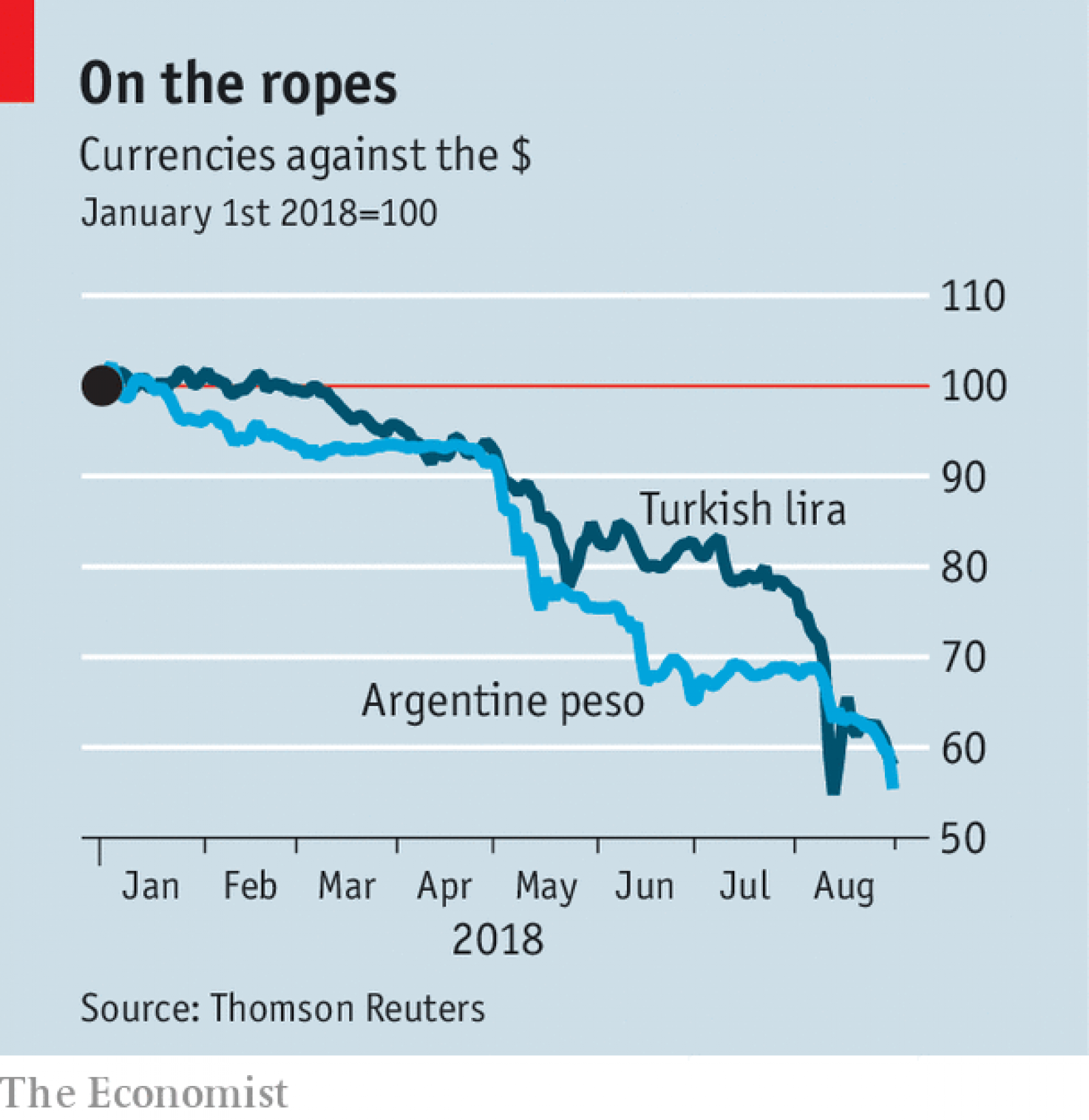Market Action
The S&P 500, Nasdaq 100 and Russell 2000 indices all hit new record highs this week. The yield on the US 10-year Treasury note edged up 2 basis points to 2.84% while the price of a barrel of WTI crude rose 1.57% to $69.80 a barrel. Emerging markets (EM) have been struggling in spite of the continued record-setting bull run in major stock markets. A recent surge of volatility in EM rivals the two other recent epic surges in volatility, during the financial crisis (2007 and 2008) and events surrounding the 9/11 attacks and Argentina’s debt crisis (2001 and 2002). Recent events have centered around uncertainty over the recent trade war, the crises in Turkey, Argentina, and Brazil. The failure by some EM central banks to proactively raise interest rates has left vulnerable some countries trying to cope with the strong US dollar.
The Argentine peso has overtaken Turkey’s lira to become the worst performer in forex markets in 2018. The peso has lost more than 50% of its value against the greenback in 2018. Other emerging market currencies are also in pain, like the South African rand and India’s rupee.
US August consumer confidence rose to its highest level since October 2000, fueled by a buoyant labor market. The rebound in the Conference Board’s consumer confidence measure to a 17-year high of 133.4 in August is primarily a reflection of the current strength of the economy, but with the expectations index rising more modestly in recent months, it does little to dispel the idea that economic growth and household spending may slow further ahead.
China’s official PMI figures for August came in better than expected, the slight improvement in the index being primarily driven by a rise in the output component. However, a similar-sized pick-up in the component measuring inventories of finished goods indicates that demand may not be keeping up, suggesting that economic activity may come under renewed pressure in the coming months.
The United States, Canada and Mexico have been rushing to conclude a renegotiated North American Free Trade Agreement in order to meet the US Congress’ legislative timetable before year-end. The US reached a deal with Mexico to amend the 1993 trade pact, but no agreement was reached with Canada. Talks will resume on Wednesday, and expectations are that agreement with Canada will be reached within the next 8 weeks.
Iran’s parliament ousted the country’s economy minister Sunday, stepping up an overhaul of President Hassan Rouhani’s cabinet amid deep domestic opposition to his response to harsh new US sanctions. The impeachment is another blow to the Hassan Rouhani government, which is struggling to respond to US President Donald Trump’s decision to pull out of the nuclear deal and reapply sanctions against Iran. Earlier in the month, Iran’s Labor Minister Ali Rabiei was also impeached.
Please click here for this week’s update on market returns.
This Week from BlackSummit
Crossroads: At the Intersection of Geopolitics and Geoeconomics
Andy Quirk
Recommended Reads
Are Superstar Firms and Amazon Effects Reshaping the Economy?
Neil Irwin
Malaysia Shuts Out Chinese Infrastructure, Property Projects
Andy Mukherjee
Italy Bond Hedges Get Dusted Off as Populists Prepare Budget
James Hirai and Todd White
What the World Can Learn from the Greek Debt Crisis
Ian Bremer and Leon Levy
How a Trade War With China Creates Security Risks for Washington
Ali Wyne
Video of the Week
Image of the Week

